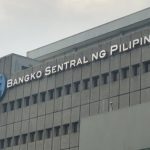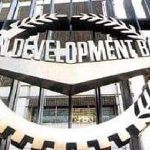MAPANANATILI ang paglago ng foreign direct investments (FDIs) sa Pilipinas sa kabila ng pagsipa ng kaso ng COVID-19, ayon sa isang ekonomista.
Iniulat ng Bangko Sentral ng Pilipinas (BSP) noong Lunes ang 98 percent year-on-year rise ng net FDIs noong October 2021 sa USD855 million, ang ika-5 sunod na buwan ng pagtaas upang umabot sa USD8.1 billion ang net FDI inflows sa unang 10 buwan ng 2021.
“Thus, FDIs remain one of the bright spots for the Philippine economy, in view of their continued double-digit growth rates in recent months, alongside the near-record highs in exports, imports, OFW (overseas Filipino workers) remittances, as well as manufacturing gauge among pre-pandemic highs as the economy reopens further from the lockdowns earlier in 2021,” pahayag ni Rizal Commercial Banking Corporation (RCBC) chief economist Michael Ricafort.
Ayon kay Ricafort, ang demographics, pagpapaigting sa vaccination program, at booster shots kontra COVID-19; at ang pagpapatupad ng Alert Level System, na “considered a de facto reopening of the economy with the shift towards smaller scale/granular lockdowns”; ay inaasahang magpapalakas sa paglago ng FDIs sa bansa.
Tinukoy rin niya ang Corporate Recovery and Tax Incentives for Enterprises (CREATE) law, ang record-low interest rate, at ang patuloy na reaffirmation ng investment-grade ratings ng bansa.
“Better economic recovery prospects and increased infrastructure spending to pump-prime/stimulate the economy, as well as part of preparations for the May 2022 elections, also helped attract more FDIs,” dagdag pa niya.
Sinabi ni Ricafort na nananatiling positibo ang global economic prospects dahil ang ilang maunlad na bansa na kabilang sa pangunahing pinagmumulan ng FDIs sa Pilipinas ay patungo na sa pagtamo ng population protection.
“FDIs are among the pillars of a country’s economic recovery program since they create more jobs/employment and other business/economic activities in the country,” aniya.
“The need to better hedge global supply chains of some multinational/global companies would also lead to more FDIs locating in the country as an attractive market and to access the country’s free trade agreement (FTA) partner countries in the Asia Pacific region.”
Dagdag pa ni Ricafort, bubuhos pa ang FDIs kapag ang bansa ay naging bahagi ng Regional Comprehensive Economic Partnership (RCEP).








